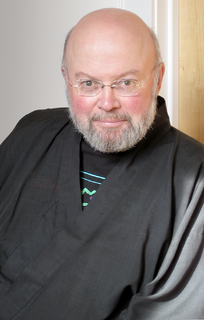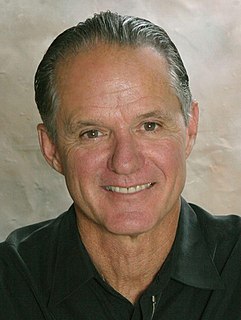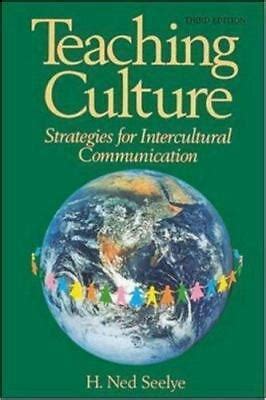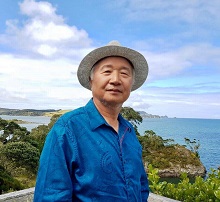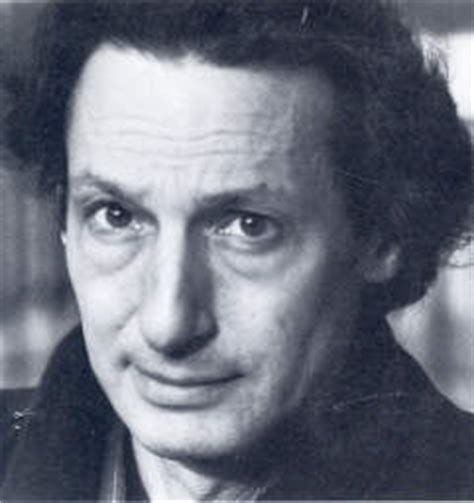A Quote by Steve Hagen
[When we drop our agendas] we begin to cultivate a mind of true goodness and compassion, which comes out of a concern for the Whole. As we live out of such a mind, we become generous, with no sense of giving or of making a sacrifice. We become open, with no sense of tolerance. We become patient, with no sense of putting up with anything. We become compassionate, with no sense of separation. And we become wise, with no sense of having to straighten anyone out.
Related Quotes
The greatest cost of the specialization of technological life - and out of which all other damages are birthed - is arguably our separation from the practical and enriching sense of ourselves as embodied beings. When we are alienated from the wisdom of the body, our lives become theoretical and abstract, and we are distanced from the direct, felt sense of living.
Mathematics is often erroneously referred to as the science of common sense. Actually, it may transcend common sense and go beyond either imagination or intuition. It has become a very strange and perhaps frightening subject from the ordinary point of view, but anyone who penetrates into it will find a veritable fairyland, a fairyland which is strange, but makes sense, if not common sense.
As we progress along the intercultural journey, we become self-reflective about habits of heart and mind and the ways these are expressed in daily life. We develop strategies for encountering change, unfamiliarity and ambiguity in creative ways. We begin to realize that what is taken, as "common sense" is really "cultural sense". Our life becomes richer and deeper for having encountered differences.
For many people, the first indication of a spiritual awakening is that they suddenly become aware of their thoughts. They become a witness to their thoughts, so to speak. They are not completely identified with their mind anymore and so they begin to sense that there is a depth to them that they had never known before.
We tried some experiments in mind reading which were not very successful. Think mind reading contrary to common sense, wise provision of the Bon Dieu that we cannot read each others minds, twould stop civilization and everybody would take to the woods. In fifty or hundred thousand centuries when mankind have become perfect by evolution then perhaps this sense could be developed with safety to the state.
. . . if you close your eyes and begin to feel your breath, it will instantly become deeper and slower, and your mind will become calmer. Then gradually you'll become aware of your body, or more precisely the subtle sense of energy inside and around your body. At that moment, you exist as Energy-Consciousness, not as names, jobs, duties, roles, desires, and so on.
Rules help govern and steer a relationship along, so they're good things. But they become bad things when they become the narrow gate though which the relationship must always pass. When this happens, the rules become the basis for the relationship and, in a sense, become a substitute for the relationship.
Historians constantly rewrite history, reinterpreting (reorganizing) the records of the past. So, too, when the brain's coherent responses become part of a memory, they are organized anew as part of the structure of consciousness. What makes them memories is that they become part of that structure and thus form part of the sense of self; my sense of self derives from a certainty that my experiences refer back to me, the individual who is having them. Hence the sense of the past, of history, of memory, is in part the creation of the self.
Eugene Peterson points out that "the root meaning in Hebrew of salvation is to be broad, to become spacious, to enlarge. It carries the sense of deliverance from an existence that has become compressed, confined and cramped." God wants to set free, to make it possible for us to live open and loving lives with God and our neighbors. "I run in the path of your commands, for you have set my heart free," wrote the psalmist.
'Station to Station' came out of a sense of urgency - a sense that culture, be it art, film or architecture, has become so compartmentalised. For this project, we wanted to break that and create a language that is more nomadic and less materialistic and really empowering for the creators and the audience.
After having been lost in the world, suddenly, through the pressure of suffering, the realization comes that the answers may not be found out there in worldly attainment and in the future. That's an important point for many people to reach. That sense of deep crisis-when the world as they have known it, and the sense of self that they have known that is identified with the world, become meaningless.
